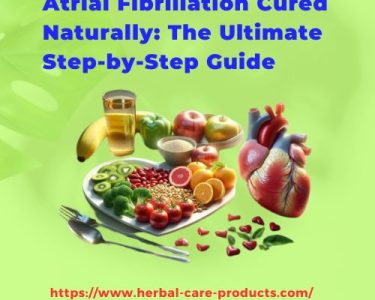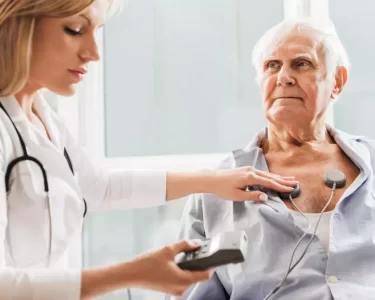Atrial Fibrillation
To treat atrial fibrillation, modern medicine offers a variety of pharmacological and surgical options. Because the treatment isn’t always effective and frequently has negative side effects, many women with Atrial Fibrillation turn to natural remedies.
Although numerous natural therapies and lifestyle changes have been demonstrated to be effective in the treatment of atrial fibrillation, there is no scientific proof that any of them can cure the condition on its own, thus they are most effective when taken in combination. Continue reading to learn about natural remedies for atrial fibrillation that might be perfect for you.
Related Article: Top 7 Foods to Avoid When You Have Atrial Fibrillation
Yoga
According to studies on the effects of yoga on atrial fibrillation, it can reduce symptoms by 45 percent and reduce the frequency of individual episodes. It is also reported to alleviate anxiety and depression by lowering heart rate and systolic blood pressure.
Acupuncture
This ancient procedure is said to restore the heart rate back to normal considerably faster and more successfully than anti-arrhythmic medicines like amiodarone, which are used to treat atrial fibrillation. Acupuncture has also reduced the number of AF recurrences.
Relaxation Techniques
Meditation, breathing exercises, and other relaxation techniques activate the parasympathetic nervous system, lowering heart rate and perhaps suppressing cardiac rhythms like AF.
Vitamins and Supplements
Fish oil, vitamin C and E, magnesium, selenium, CoQ10, and the amino acid N-acetyl-cysteine have all been demonstrated to help the heart perform better. They can also minimise the risk of arrhythmias by reducing stress, which causes atrial fibrillation.
Related Article: Atrial Fibrillation Natural Remedies, Supplement and Diet
Herbal supplements having anti-arrhythmic properties, such as Wenxin keli or hawthorn, should be taken with cautiously because they may interfere with some AFib medicines.
Anti-inflammatory Diet
A diet high in fibre from grains, legumes, fruit, and vegetables, lean meat and fish, and low-fat dairy is not only excellent for the digestive system, but it also helps to lower cholesterol, triglycerides, and blood pressure. Oils, green tea, chocolate, and almonds are all heart-healthy foods.
Hydrate
Because dehydration is one of the most common causes of atrial fibrillation, staying hydrated is critical for AF prevention and treatment. The greatest options for meeting daily fluid requirements are water and coconut water, which include magnesium, potassium, and are low in sodium.
Exercise Regularly
Regular, moderate exercise has been found to improve heart function, stress and anxiety, diabetes, hypertension, and obesity, all of which are known risk factors for atrial fibrillation.
Avoiding Stimulants
According to studies, women who consume excessive amounts of caffeine, energy drinks, alcohol, or cigarettes are more likely to develop atrial fibrillation and experience more AF episodes. Another Atrial Fibrillation trigger that should be avoided as much as possible is air pollution.
Quality Sleep
Atrial fibrillation can occur in women who have trouble sleeping. To relieve stress and worry and to allow your body to replenish itself and remain strong and healthy, try to sleep 7-9 hours per day.
Gluten-free
A gluten-free diet may be beneficial for Atrial Fibrillation patients, according to studies that established a relationship between celiac disease and atrial fibrillation. Many gluten-free items, such as bread and pasta, are now available, and many foods, such as beans, rice, potatoes, and soy, are naturally gluten-free.
Because stroke prevention is the primary goal in managing atrial fibrillation, any practises that enhance heart health also minimise the risk of AF and its consequences. Alternative treatments for AFib have a number of advantages, but before making any changes to your recommended therapy, check with your doctor to ensure that they are safe.
Learn More:
- 11 Natural Treatments for atrial fibrillation
- Treatment of Atrial Fibrillation Symptoms
- Atrial Fibrillation Symptoms, Causes, Diagnosis, Treatment
- Is Atrial Fibrillation going to get worse?
- Common, dangerous side effect of binge drinking may be prevented with experimental treatment
- Is It Safe to Take Viagra with Atrial Fibrillation?
- Home Remedies for AFib Treatments: Your Comprehensive Guide
- Herbal Treatments for Atrial Fibrillation: Foods to Eat and Avoid for Optimal Health




